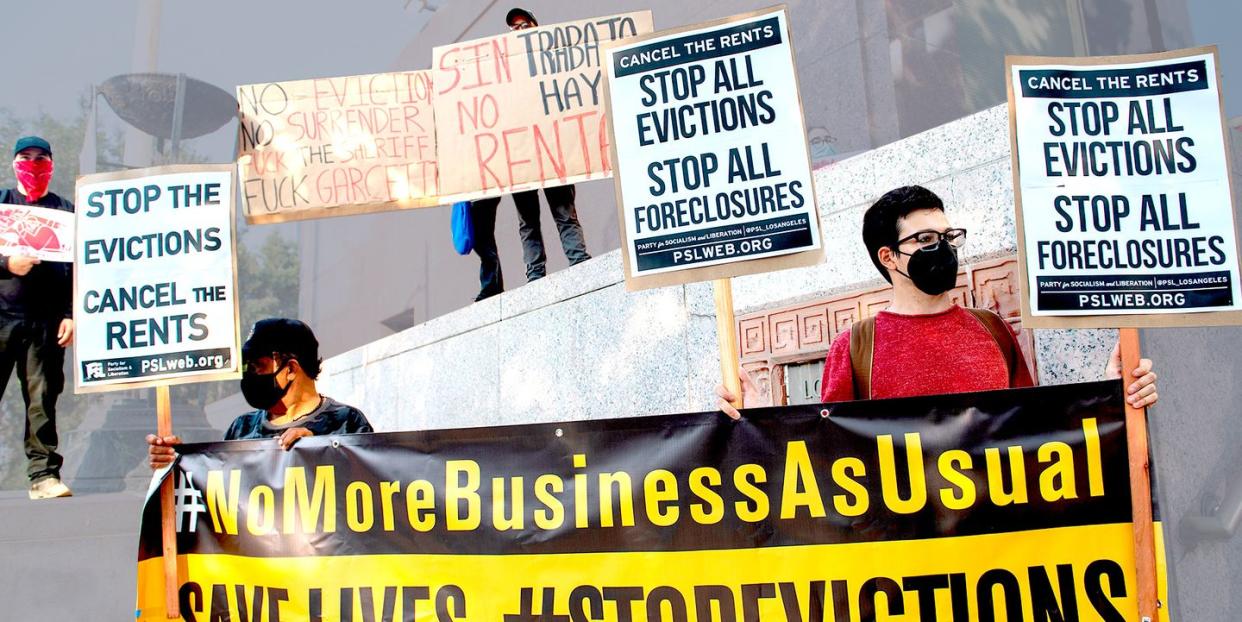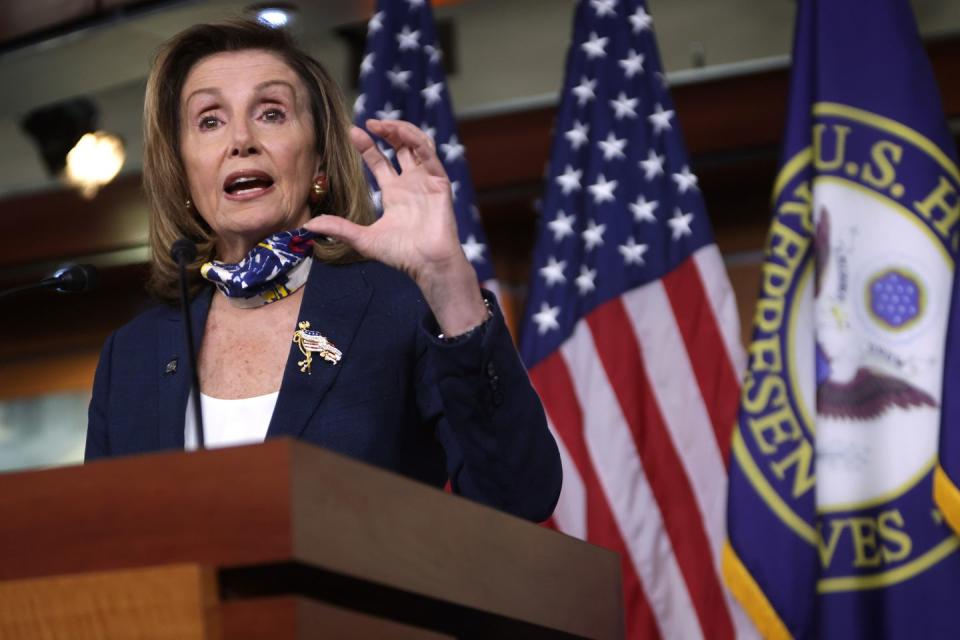How Much Longer Can We Go On With So Many American Households Close to Financial Ruin?

At least half of all households in the four largest American cities—New York City, Los Angeles, Chicago and Houston—are facing major financial issues due to the Covid-19 pandemic and the economic disruption it's brought with it, according to a new survey from NPR, the Robert Wood Johnson Foundation, and the Harvard T.H. Chan School of Public Health. The results are almost certainly representative of the nation at large: the most financial hardship was reported among Black and Latino Americans and those making under $100,000—the same groups that have borne the brunt of the crisis as a whole. 86 percent of households with income under $30,000 a year report they're in trouble. These folks are more likely to actually get the virus, or to have jobs you can't do remotely, meaning their livelihoods are more likely to have been disrupted. That's not just a big-city thing.
The turmoil has not just embroiled the millions of Americans who are now unemployed. Others have been furloughed, or had their hours or wages reduced. The result is that many, many Americans are now struggling to pay their bills. One in four households in these major cities are having trouble paying utility bills, according to the survey. One in three have used up all or most of their savings. One in three report they're struggling to afford food. 60 percent report problems finding childcare. People are weighed down with credit card debt, making car payments, affording medical care, paying rent.
"Before federal coronavirus support programs even expired, we find millions of people with very serious problems with their finances," Robert J. Blendon of Harvard, co-director of the poll, told NPR. "And it's going to get worse because there is nothing for the people we surveyed who earn under $100,000 a year to fall back on."
Because this has all gotten worse since Congress allowed the boosted unemployment benefits to expire, and it's not clear where relief is going to come from. House Democrats passed an extension to the emergency relief back in May, which Senate Republicans essentially allowed to gather dust on the shelf for months before finally coming to the table at the end of July. Negotiations have gone nowhere, so Senate Republicans released a bill on Thursday that House Speaker Nancy Pelosi almost immediately dismissed as "pathetic." She added, "Lets not have a skinny bill when we have a massive problem," seizing on one characterization of the bill. (Mitch McConnell is trying to make "targeted" happen.) According to the Washington Post, the new bill is a bit skinny indeed.
The Senate GOP bill advanced by Senate Majority Leader Mitch McConnell (R-Ky.) contains new money for small businesses, coronavirus testing and schools, and $300 weekly enhanced unemployment benefits to replace a $600 weekly benefit that expired July 31 for some 30 million jobless workers. The measure includes roughly $650 billion in total spending, but it would repurpose roughly $350 billion in previously approved spending, bringing the tally of new funding to around $300 billion.
It also contains some "poison pills" for Democrats, like liability protections for businesses—which introduces moral hazard for companies considering whether to bring workers back, allowing them to put safety on the back-burner—and money for school vouchers. It's unlikely this bill will even make it through the Senate's 60-vote logjam thanks to Democratic opposition—and even some noises from hard-right Republicans balking at even this modest level of spending. Either way, it's likely dead-on-arrival in the House. It also provides no funding for state and local governments who are in fiscal turmoil due to the crisis, another Democratic priority. Republicans in the Senate seem to think local governments going bankrupt is simply not their problem.

The poison pills are certainly unacceptable, and it's fairly incredible that Senate Republicans have rejected any further stimulus checks—for another $1,200 or otherwise—despite White House support. The question for Democrats is how much to hold out for. Politically, they hold the advantage. Voters traditionally blame the party whose figurehead occupies the White House for inaction or poor results, which McConnell used to tremendous effect for the eight years leading up to January 2017. The majority leader has even said publicly that some of the endangered members of his caucus, like Colorado's Cory Gardner, want (need) this bill. While the elite political press will likely blame Democrats based on the binary of Bill/No Bill—rather than, say, is the bill good enough, and who wants to make it better, and also who passed a benefits extension back in May?—it's unclear that voters will punish them.
Still, Democrats must also consider that millions of people are suffering, right now, and would happily take the extra $300 even if what the economy might really need is for folks to get an extra $600. Perhaps Democrats should choose one issue—another round of stimulus checks, say, considering the White House support—and dig in on that until McConnell folds. They certainly should reject the employer liability atrocity. But from a moral standpoint, it is becoming increasingly untenable for Congress to get nothing done, and it's not solely down to Republican cynicism, no matter how sprawling and voluminous. People can't pay their bills, and they need help now.
You Might Also Like

